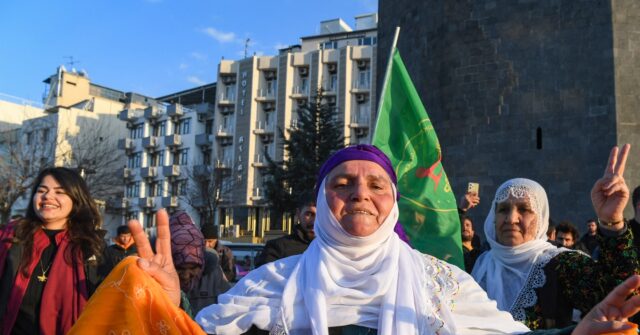A Historic Step Toward Peace: The PKK’s Ceasefire Declaration
Introduction to the Ceasefire and Its Significance
In a groundbreaking development, the Kurdistan Workers’ Party (PKK), a militant group outlawed in Turkey, announced a ceasefire on Saturday, marking a potential turning point in a conflict that has spanned over four decades. The declaration came in response to a landmark call by Abdullah Ocalan, the jailed leader of the PKK, who urged the group to disband and end its armed struggle. This move has sparked hope for a peaceful resolution to a conflict that has cost tens of thousands of lives and deeply divided communities in Turkey and beyond.
Historical Context: The PKK’s Struggle and Its Evolution
The PKK, designated as a terrorist organization by Turkey, the United States, and the European Union, has been waging an insurgency since 1984. Initially fighting for an independent Kurdish homeland, the group has since shifted its goals to advocating for greater autonomy, cultural rights, and linguistic freedom for Turkey’s Kurdish population, which makes up around 20% of the country’s 85 million people. Over the years, attempts to end the violence have been met with limited success, including sporadic peace talks and ceasefires that ultimately collapsed.
This week’s developments, however, represent a significant shift. After months of silence, Ocalan, who has been imprisoned since 1999, called for the PKK to lay down its arms and convene a congress to formally dissolve the organization. The PKK’s executive committee, based in northern Iraq, swiftly responded by declaring a ceasefire, effective immediately. “In order to pave the way for the implementation of leader Apo’s call for peace and democratic society, we are declaring a ceasefire effective from today,” the committee stated, referencing Ocalan by his nickname. The group emphasized that it would not engage in armed action unless attacked and expressed its readiness to follow Ocalan’s directives.
Regional Implications: A New Era for Turkey and Syria
The potential for a lasting peace agreement with the PKK holds far-reaching implications for the region. Analysts suggest that such a deal could benefit both Turkey and Syria, where the PKK’s influence extends. Anthony Skinner, director of research at Marlow Global, noted that a peace deal with the PKK could facilitate efforts to stabilize Syria, which has been ravaged by a decade-long civil war. “This is a key objective for the Turkish government, which has had to contend with the ongoing threat of cross-border mass migration and terrorism,” he said.
Turkey has long been concerned about the presence of Syrian Kurdish forces, which it links to the PKK, and has conducted regular military strikes in northern Syria. A ceasefire could ease tensions and create an environment for dialogue, potentially paving the way for greater regional stability. However, analysts like Bayram Balci of Sciences Po Paris caution that the PKK’s influence has waned in recent years, as it no longer enjoys the same level of support from key players like Syria’s Bashar al-Assad or the United States. “There is also a kind of fatigue,” Balci added, referencing the diminishing threat of the Islamic State (ISIS) and the changing dynamics of the region.
The Road Ahead: Challenges and Opportunities
While the ceasefire represents a historic opportunity for peace, significant challenges remain. The PKK has emphasized that the success of Ocalan’s call depends on the creation of a “suitable secure environment” and the ability of its leader to personally direct the process. This includes demands for improved prison conditions for Ocalan, who must be able to “live and work in physical freedom” and maintain unhindered communication with his followers.
Turkey, meanwhile, has welcomed Ocalan’s call as a “historic opportunity” for peace. President Recep Tayyip Erdogan expressed optimism about the prospects of ending the insurgency but has also made it clear that his government will closely monitor the situation to ensure the talks are successful. However, the path forward is fraught with complexities, including the need to address decades of mistrust and the betrayal felt by many Kurds who have sacrificed much in the struggle for their rights.
Conclusion: A Glimmer of Hope Amidst Decades of Conflict
The PKK’s ceasefire declaration and its willingness to disband mark a potential turning point in one of the most enduring conflicts of the modern era. While the road ahead is uncertain, the move has raised hopes for a peaceful resolution that could bring stability to Turkey and the wider region. As Ocalan’s words resonate across the region, one thing is clear: this is a moment of profound significance, and its outcome will shape the future of millions of people for years to come.
In the words of analysts and observers, the success of this peace process will depend on the ability of all parties to create an environment of trust and cooperation. For now, the world watches as Turkey and the Kurds take tentative steps toward a future free from the shadows of violence and division.


